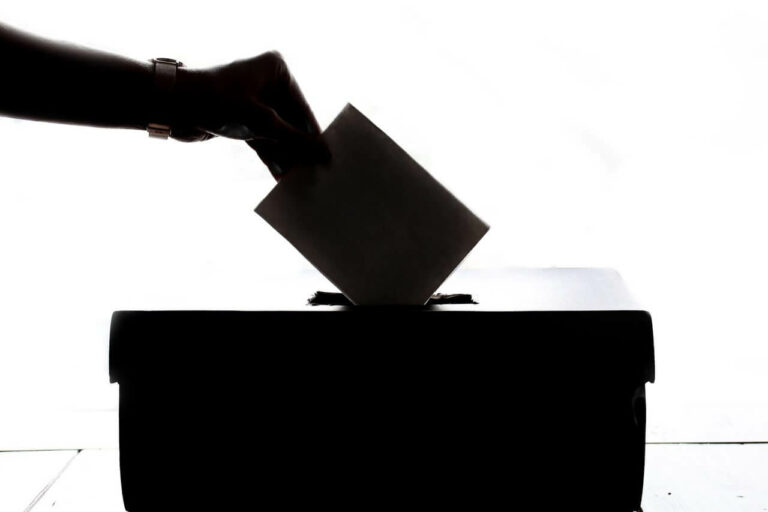
PredictIt continues to wrestle with the problem of how to resolve outstanding markets when it’s forced to shut down in February. But first, it’s trying to avoid that situation entirely.
The electoral predictions site had been operating under the grace of a No-Action letter from the Commodities and Futures Trading Commission (CFTC) to the Victoria University of Wellington. The financial regulator withdrew that permission in August, ordering the university to shut the site down by Feb 15, 2023.
One big problem is that many users have money riding on predictions about the 2024 US Presidential election. Those propositions won’t have been settled by the time the site shuts down. As it stands, the CFTC’s orders to PredictIt are not just to cease trading by that February deadline but to liquidate all positions.
A group of plaintiffs has filed suit against the CFTC, trying to keep PredictIt operating. The group includes academics and site users, plus the site operator Aristotle International, but notably excludes Victoria University itself. That might be the suit’s downfall if the court decides that the plaintiffs lack standing without the university on board.
Legal battles being the drawn-out affairs they are, PredictIt is seeking a more immediate solution in the form of an injunction.
What Relief is PredictIt Seeking?
The scope of the injunction is pretty narrow. The plaintiffs aren’t seeking permission to open any new markets on PredictIt. The injunction states that although they “also challenge the Commission’s decision to […] bar the issuance of contracts,” they will wait to seek relief on that front in future proceedings.
For the time being, they only want an assurance that all existing markets can continue to trade until PredictIt can settle them correctly at their “natural conclusion.”
In a press release, Aristotle’s lawyer David Mason explained:
All we are asking in the preliminary injunction motion is to continue to allow trading in existing, legally issued contracts and contract markets while the court decides the broader issues in the case.
More than 14,000 individual traders hold positions in contracts involving the 2024 presidential election that the CFTC has ordered closed by Feb. 15, 2023. We think it is unfair to those traders to be forced to liquidate their positions while the court is considering the legality of the CFTC’s shutdown order.
What Happens if the Injunction is Denied?
PredictIt is in a tough spot if it has to settle open markets by the Feb 15 deadline. If players were betting against the site as they would at a sportsbook, the easy solution would be to void all bets. However, the nature of a betting market makes things more complicated. A single “Yes” or “No” share might have changed hands several times at different prices, making refunds anything but straightforward.
For instance, imagine that Users A and B make an even-money $0.50/$0.50 bet on a proposition, with A taking Yes and B taking No. (PredictIt holds the $1). B later sells his No share to C for $0.70, taking a $0.20 profit.
Remember that Predict is only holding $1 here. If it were to refund $0.50 to A and $0.70 to B, it would be out $0.20. It can’t reclaim that money from B, as that’s now cash in B’s pocket. However, it’s unclear whether the lost $0.20 should come from A’s refund or B’s or be split between them.
PredictIt could instead settle each market at its current value. That could lead to strange market distortions as those with significant positions attempt to shift the price in their favor once it’s no longer coupled to any real-world outcome.
Whatever PredictIt chooses, those who’d been holding winning shares will feel short-changed once the outcome becomes known. The only solution that would satisfy all users would be to pay out fully on both sides of each market. However, that would be very expensive for Aristotle.
Users Won’t be Able to Reclaim Damages from the Fed
Defending the interests of its users is, therefore, very important for Aristotle. Anyone who doesn’t get a full payout for winning shares can reasonably claim to have been damaged by the premature settling of the markets.
Crucially, they won’t be able to sue the CFTC to reclaim those damages. They might, however, come after Artistotle if they feel its solution for settling the markets was unfair. Naturally, it would like to avoid that possibility, and obtaining an injunction to allow it to let the markets run their course is the easiest way to do so.
The filing for preliminary injunction makes this point quite clearly:
Because the economic damages to Market investors are being caused by a federal Government action, sovereign immunity and other principles will make it difficult to recover these damages later, rendering the harm irreparable. Accordingly, the Plaintiffs are seeking a preliminary injunction against the Commission prohibiting markets that were already in place as of the Commission’s revocation decision from continuing to trade to their natural conclusion.





